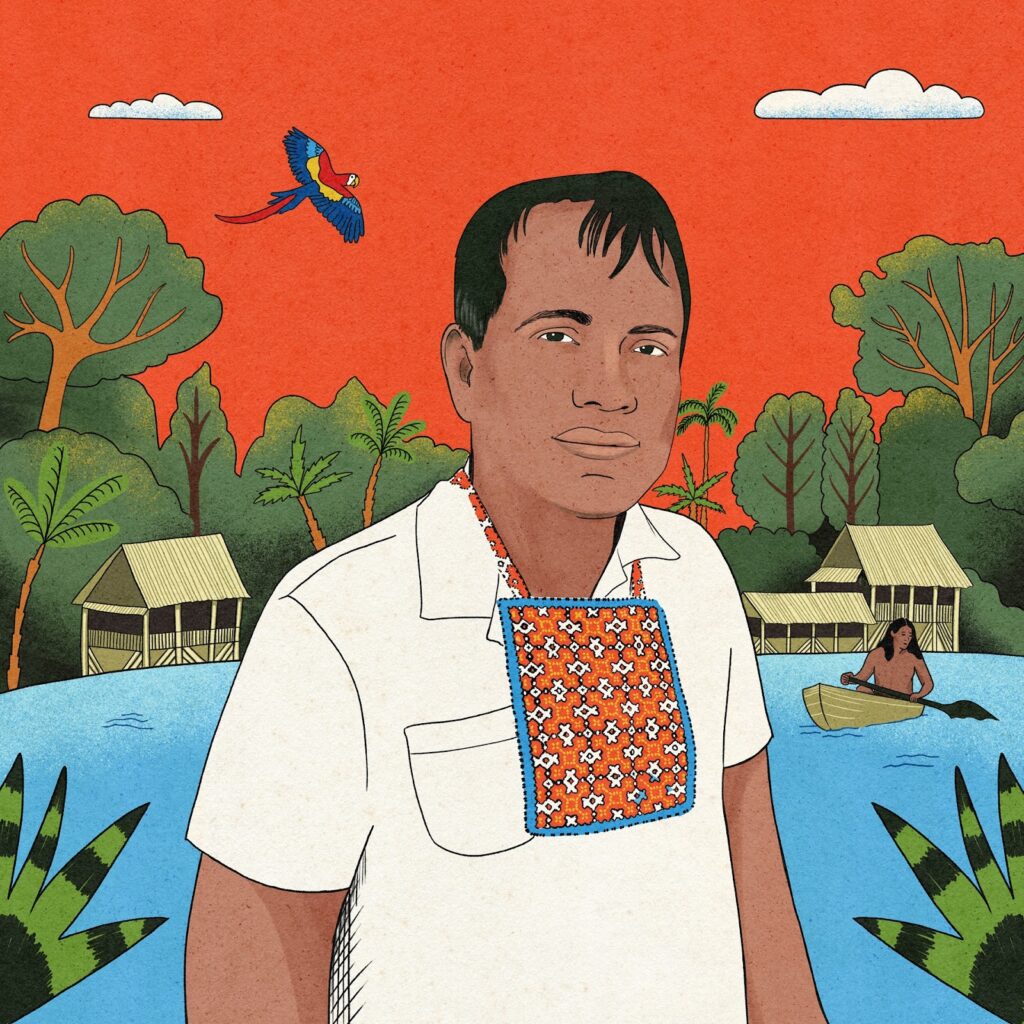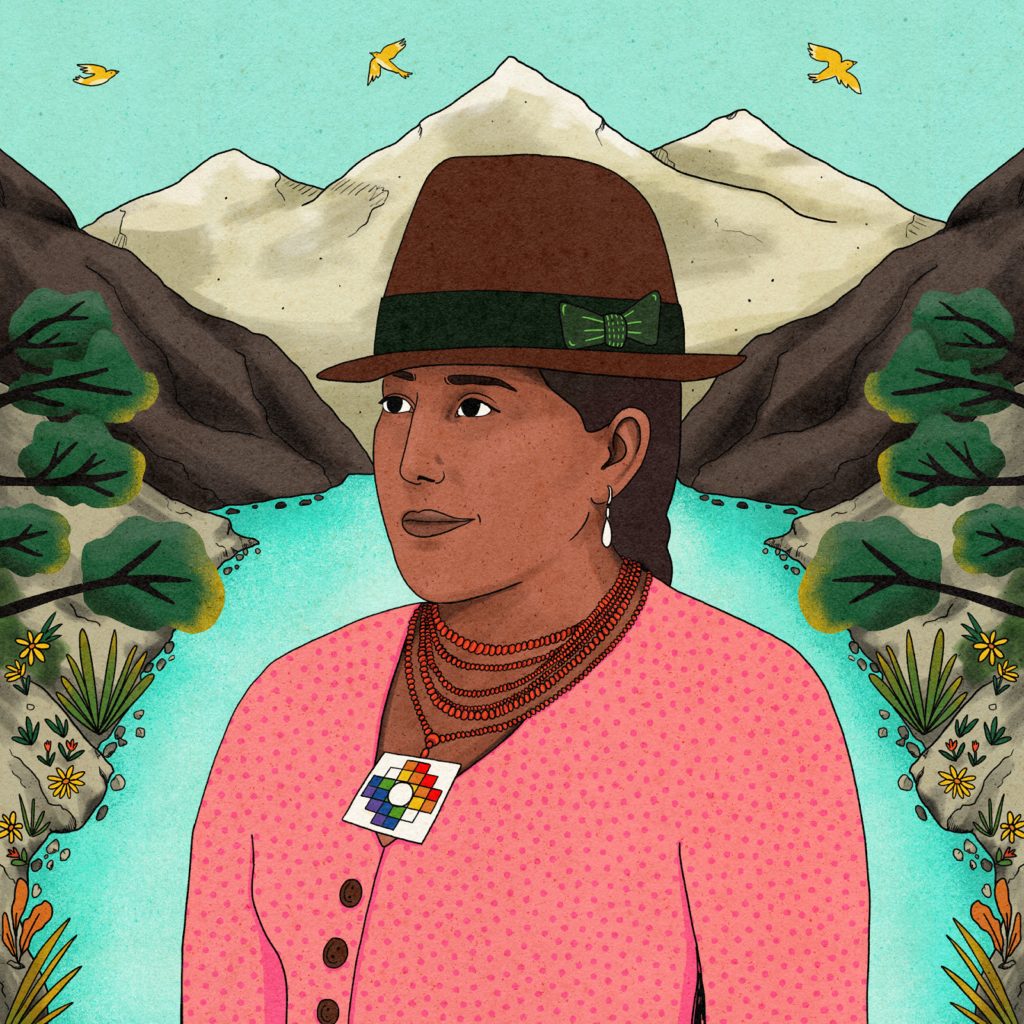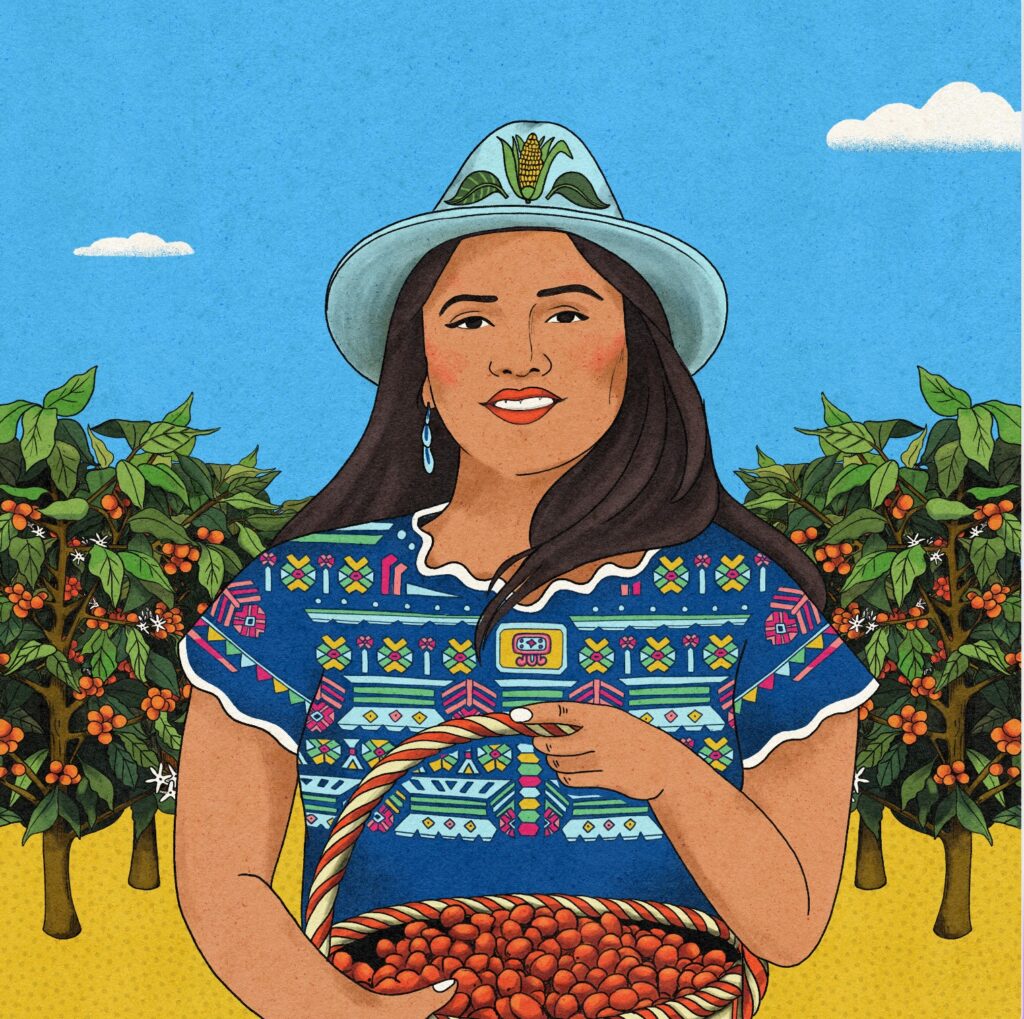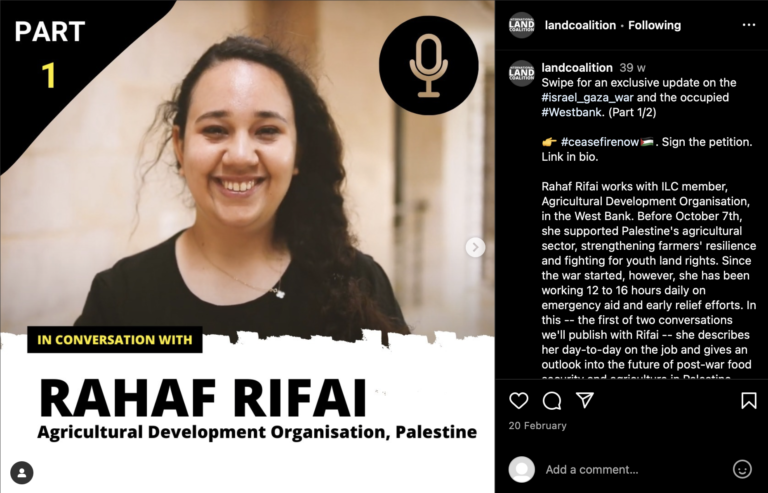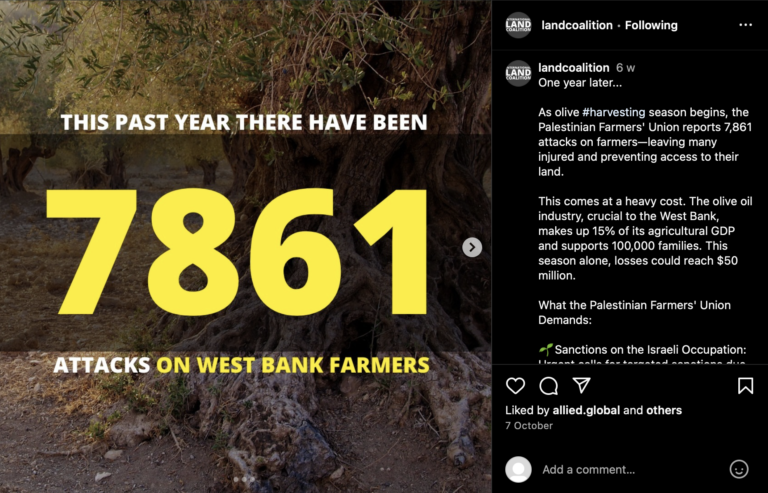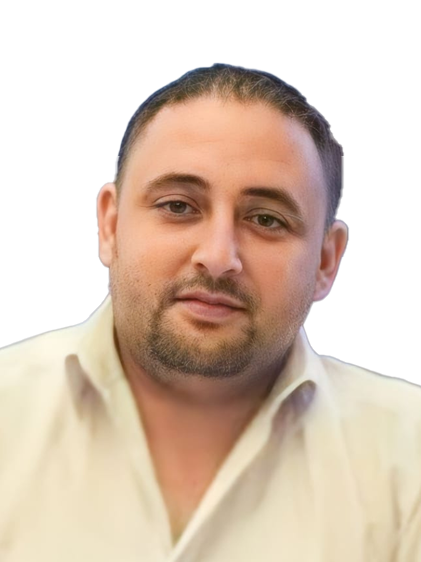CHAPTER 3
BUILDING GLOBAL MOMENTUM FOR LAND RIGHTS
political commitment towards
people-centred land governance
Even as we work locally – pushing for systems change through National Land Coalitions– we use the breadth and expertise of our coalition to build political will for people-centred land governance globally. The Sustainable Development Goals are a perfect example of this, where heads of state have committed to a more sustainable future by 2030, including through land-related targets and indicators.
In this vein, we continued to coordinate the SDG Land Momentum Group, strategically advancing efforts to enhance land target reporting (indicators 1.4.2, 5.a.1-2, 15.3, and 16.10). We solidified our leadership at international fora, where land target reporting gained significant traction with government and civil society authorities.
Policy spaces influenced
global
regional
national
youth from ILC members in international spaces
Land rights to solve a global climate and nature crisis
WE REPRESENT
LAND USERS IN 81 COUNTRIES
"Land rights are a critical pathway to counter the climate crisis. Addressing this crisis is a central motivation for our work for people centred-land governance. We know the magnitude of our task, and we commit ourselves to the urgent work of changing the systems that are wreaking havoc on our planet and its people."
Dead Sea Declaration, Article 1
Connecting climate to land rights in international advocacy spaces
Together with the women, youth, family and small-scale farmers, Indigenous Peoples and pastoralist members of the ILC we have developed climate messaging that our entire network has united behind.
Prior to the 2022 UNFCCC COP27 in Egypt, for instance, we held broad consultations with 200 members and land rights experts, while during the conference, supported 20 members, co-lead 12 side events, and strengthened the demands of Indigenous women in our network through Land Rights Now!’s “She Should Make The News” campaign. Read more on the campaign in the section “Women fight for climate justice and against patriarchy”. Moreover, nine land rights champions amplified the call for land rights in climate justice, including Fridah Githuku, then co-chair of the ILC Council and executive director of Groots Kenya who powerfully articulated our message throughout the conference:
"Land and nature are the greatest sources of livelihood for humankind,” she explained. “Threats to land result in a negative change in human behaviour that accelerates the climate crisis. Securing people's land rights is a pathway out of the climate crisis."
It was also the first time we launched a digital media campaign with climate messaging. Proving a success, we received over 20,000 engagements and witnessed an overall 25.4% net audience growth – reaching new audiences and increasing ILC’s visibility.
The following year at UNFCCC COP28 in UAE, we amped up our efforts. Co-leading 19 side events, and supporting 39 members, we stood united, emphasising the importance of land rights for smallholders, family farmers and pastoralists. We furthermore underscored their importance in transforming food systems for climate resilience against industrial agriculture, an industry responsible for exacerbating land inequality.
Executive Director of the Palestinian Farmers’ Union, Abbas Melhem – who travelled to COP28 amid Israel’s war on Gaza and escalating violence against Palestinian farmers in the West Bank – explained our demands:
"I want to see land rights and access to that land secured,” Melhem affirmed. “Farming without small-scale farmers is impossible on this planet. To bring soul back to our lives, we need to bring farmers back to their land. That will save us."
In another resounding affirmation, our COP28 social media campaign resulted in a 119% increase in engagement across channels compared to the same period the previous years.
In 2024, we shifted our attention to the Conference of the Parties to the Convention on Biological Diversity (CBD) COP16 in Colombia where we celebrated the recognition of land rights with the endorsement of the Traditional Knowledge Indicator on Land Tenure and Use (HI 22.1), based on a methodology that ILC played a critical role in co-developing. This indicator will be a powerful tool in our network’s advocacy efforts. You can read more about these achievements in the data section.
It was one of ILC’s first official forays in the space, where we supported more than 30 members, and co-led 16 side events and many other member activities, including a press conference to promote women’s land rights together with the CBD women’s caucus. ILC’s booth became an important meeting point for members and a source of land rights information for passers-by, including for many first timers at the CBD COP, who used it to align their strategies of engagement going forward
Making history, the Indigenous Peoples and Biodiversity Coalition Philippines travelled to launch a Biodiversity Strategy and Action Plan (BSAP) that the government of the Philippines promised to integrate into its own plan.
¨Our advice really is also to have parallel indigenous-led processes, instead of just trying to get into the spaces which are very limited that are opened by our governments.”
Jill Carino, The Indigenous Peoples and Biodiversity Coalition
“[Lithium extraction] pollutes our way of life, and that is the fight that is taking place today, in Jujuy. Our way of life.”
Indigenous Peoples resist extractivism in Argentina
Joining the Indigenous Peoples and Biodiversity Coalition Philippines at COP16 this year were Indigenous Peoples from Jujuy, Argentina. They travelled to Cali to continue a two-year-long protest against lithium exploitation – a key mineral for the energy transition – in their territories.
The campaign began in 2023, when ILC member Plurales began technically and financially backing local organisations in Jujuy in their protests against the state-sanctioned lithium extraction without Free, Prior, and Informed Consent. To build public consciousness, they produced the documentary “Litio: Qué hay detrás de la reforma” [Lithium: the truth behind the reforms],” screened at advocacy spaces worldwide, including UNFCCC COP28 in Dubai.
At CBD COP16, with the support of Land Rights Now! and ILC’s regional Plataforma de Defensores y Defensoras de la Tierra y el Terriotorio [Platform for Land and Territory Defenders], Jujuy communities continued to demand an end to the extractivist policies that violating their rights through a follow-up campaign.
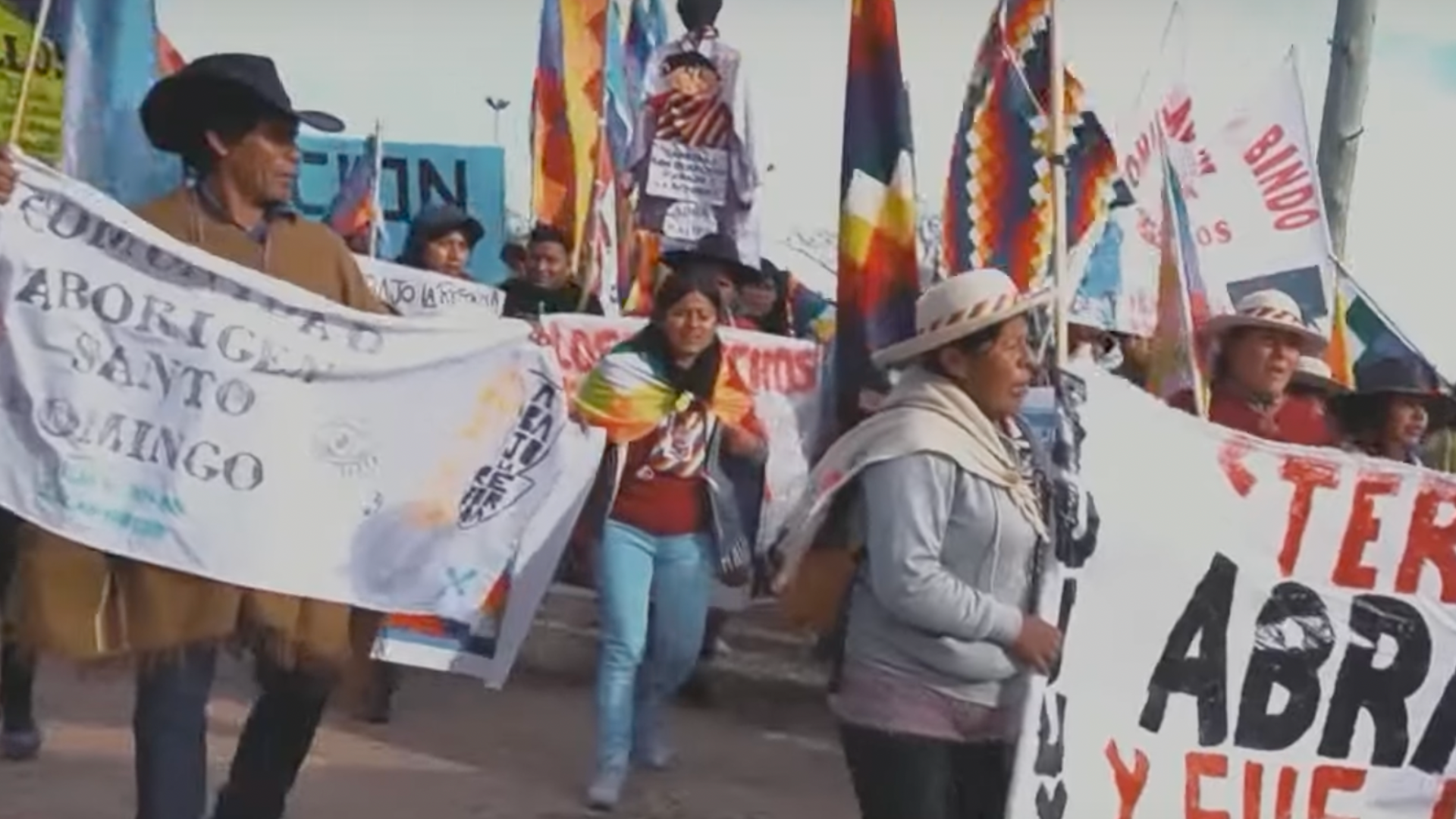
Women fight for climate justice and against patriarchy
Across our network, women transforming their local realities came together to power global movements for gender-just change. Like Indigenous Peoples, pastoralists, and youth, much of their work in this triennium was climate-focused. Time and again, they showed up in international spaces to advocate for their land rights and roles as ecosystem protectors.
“We campesino women have significant potential that we have not fully discovered or brought completely to fruition. It is a question of leadership. We have been led to believe we are good caregivers and it comes naturally. But we can also headway very interesting processes that pull us from obscurity, from backwardness, and isolation.”
Dora Corvalán
At UNFCCC COP27 and COP28, Indigenous women told their stories through Land Rights’ Now!’s global campaign, “She Should Make the News”. Cindy Kobei, from the Ogiek community of the Mau forest in Kenya, came to COP27 to mobilise young Indigenous Peoples to fight the climate crisis and “grow a generation of Indigenous human rights defenders.”
Chandra Tripura, from the Tripura Indigenous People of Chittagong Hill Tracts, Bangladesh, brought a similar message to COP28:
“Indigenous peoples’ knowledge always gives us strength to stand as unique and the rich culture that we have makes us learn this collective ownership, or co-responsibility within the communities,” she said. “Our lives begin and end with land.”
Through mock-up magazine covers, blog posts, and social media outreach, the campaigns demanded increased recognition of the role Indigenous women play in climate crisis solutions. Combined, they garnered significant international interest, with more than 31,000 impressions.
“Once land justice happens, there will be climate justice you cannot talk about one without the other.”
Cindy Kobei, Ogiek, Mau Forest
The first ever Global Land Forum Youth
Youth will have to live with the consequences of our land use decisions, yet they are often excluded from decision-making processes. ILC is creating spaces for youth to take joint action to change this.
At the first Global Land Forum Youth in Jordan, 100 young people from 35 countries united, taking measures to ensure that they have the skills and knowledge to not only lead a transformation towards people-centred land governance but also a climate-just future.
Through the #GLFYAmbassadors social media campaign, they reached over 855,000 people, building momentum that culminated in the Youth Declaration, presented at the Global Land Forum and integrated into the Dead Sea Declaration.
The declaration emphasises young peoples’ collective power to shape a sustainable future and pledges leadership through ILC in addressing the climate crisis on both regional and global stages. Archana Soreng, a young youth land rights and climate activist from India, emphasised the importance of the occasion:
“I am very happy to meet young people and local communities and Indigenous Peoples across the globe advocating for land rights. I feel a source of inspiration and strength. Respect and solidarity makes a difference. We stand together for climate action and land rights.”
Case study
Maasai pastoralists fight for people-centred conservation
Maasai herders have been living sustainably on their land for generations, using adaptable and mobile land management practices proven to protect and enhance their ecosystems’ biodiversity and climate resilience. Despite this, in June 2022, the Tanzanian government issued an eviction order to forcibly remove 150,000 Maasai Indigenous people from the Loliondo and Ngorongoro conservation areas – continuing decades of policies that have prioritised elite nature tourism and “fortress conservation” over respect for their rights.
In recent years, the government has also begun cutting off essential services to Maasai territories in a parallel attempt to force the pastoralists from their land.
Many Maasai leaders protesting these evictions have faced reprisals, including jail time, and in 2022 government repression sparked a global media campaign to pressure the state to halt Maasai displacement.
ILC has supported its members to bring attention to these struggles. Then-ILC Africa Coordinator, Audace Kubwimana, brought attention to these abuses on BBC World Service, as did a spokesperson of ILC Member PINGOs Forum to BBC Africa, while Al Jazeera highlighted the story through viral coverage.
In May 2023, ILC facilitated a number of meetings of Maasai representatives from our network in Germany, Italy, and EU headquarters, urging European institutions to halt funding that enables such human rights abuses. Partially in response to these efforts, the European Union removed Tanzania from its conservation funding list in 2024, citing the state’s serious human rights violations against the Maasai. We spoke to a local land rights defender after the victory, who preferred to remain anonymous, for fear of government backlash.
“We can see now at least some kind of discussion is taking place. We are trying to find openings for dialogue with the government and with the European Institutions,” they affirmed, ”But now we are in a bit of a confrontation with the government. They are not happy with what has been happening.”
STANDING FOR
women’s land rights
Any one of the women we have introduced you to in our report could tell you that their fight for their land rights is all the more uphill because of their gender. In addition to facing the ‘usual suspects’ – including persecution, threats of land grabs, and the onslaught of large-scale agriculture and extractive industries – women must also confront patriarchal social and legal norms that prevent land access and ownership.
By elevating the stories of women landholders worldwide through advocacy, capacity building and storytelling the Stand for Her Land Campaign provides an international platform for members to break through gender-discriminatory policies and practices. Over the past triennium, ILC members in Colombia, Senegal, Uganda, and Bangladesh, have mobilised through the campaign – each towards their own country-specific advocacy goals – and collectively to create a world where women can thrive, contribute, and lead in the stewardship of their land. In Bangladesh, for example, fewer than 13% of rural landowning women hold documented rights and only 4-5% control land. There, campaign members prioritised building their power in national advocacy spaces to demand the stronger enforcement of land and inheritance laws in the country.

Resisting through genocide in Palestine
In Palestine, farmers in our network continue to face extreme hardship since the Israeli army and settlers began violently retaliating to the October 7th, 2023 Hamas attacks. This violence prevents farmers from harvesting their land through forced displacement, attacks, and killings. As of October 7th, 2024, ILC member, the Palestinian Farmers´ Union – which has dedicated itself to documenting abuses against farmers in the West Bank – reported a shocking 7,861 attacks on farmers in the region since Israel’s war on Gaza began.
This comes at a heavy cost, not only to lives but to the future livelihoods of Palestinian farmers. The olive oil industry, crucial to the West Bank, makes up 15% of its agricultural GDP and supports 100,000 families. In the 2024 season alone, losses could reach $50 million.
Our members in Palestine (The Arab Centre of Agriculture Development ACAD, the Agriculture Development Association PARC, The Palestinian Farmers Union PFU and SHARAKA) have refused to give up – and continue to mobilise through blockades, providing much-needed emergency aid in the form of food and other basic goods to those affected in the West Bank. They have done so at great personal cost to themselves and their families. Many have been threatened, detained, and lost loved ones.
Rahaf Rifai, a young land rights activist who works with ACAD told us that looking forward to rebuilding – championing indigenous agricultural knowledge and the psychological wellbeing of farmers – helps sustain them during an otherwise desperate time.
“If anything gives me hope it is my people because I know how resilient we are. Our insistence to live will prevail. I know that this war is very hard, but it will not be the end of us. We'll come back stronger, more resilient, and even more determined to change our reality .”
Rahaf Rifa
As a network, we have collectively mobilised in solidarity with our members in the West Bank through statements in November 2023 and September 2024. We remain profoundly distressed by Israel’s ongoing war against Palestine and call for global solidarity to safeguard innocent lives and urge an immediate ceasefire alongside non-discriminatory humanitarian aid.
In support of a free Palestine, we amplified member voices through, for example, our “In Conversation With” series, and our “Understanding Palestine” resource centre. We are proud that our campaign in support of Palestine attracted international media attention from Al Jazeera, and has garnered 14,000 impressions through social media.
As Thaer Fakhoury, who works with our partner, the Arab Center For Agricultural Development, told us,
“No one can bear what’s happening here, [but] we will not leave.”
Case study
Feeding the UN Decade global and regional action plans
So far, 19 National Land Coalitions have engaged in Decade activities, with seven countries adopting family farming policies, including Kyrgyzstan, where a National Action Plan was formulated in consultation with local farmers.
The UN Decade of Family Farming 2019-2028 emerged from a long advocacy journey that began with the 2008 International Year of Family Farming campaign, coordinated by ILC member, World Rural Forum and driven by family farming organisations.
By 2018, regional initiatives were underway, creating strong linkages between global and regional efforts to foster a shared strategy. This groundwork led to the UN’s 2017 declaration of the Decade of Family Farming, endorsed by ILC and other stakeholders like IFAD and FAO, aiming to inspire global political commitment to supporting family farmers.
We continued our advocacy this triennium. In March 2024, the ILC held a pivotal session at the Global Conference on Family Farming, focusing on secure land tenure—especially for women and rural youth—as a cornerstone for the Decade’s objectives, the SDGs, and sustainable food systems.
Case study
Global Land Forum Jordan and the Dead Sea Declaration
In 2022, we held the Global Land Forum for the first time in the Middle East, hosted by Jordan’s Ministry of Agriculture and SEEDS, in partnership with the EU and under the patronage of King Abdullah II.
The event brought together our network to reconnect, strategise, and collaborate after two years of pandemic restrictions.
The Forum culminated with the Dead Sea Declaration, emphasising the urgency of combating the climate crisis, advancing youth leadership, and championing women’s land rights and gender justice. Members also chose to use the declaration to stand in solidarity with members and communities in the Occupied Palestinian Territories, advocating forjustice, peace, dignity, and protection from dispossession, annexation, and ecological harm resulting from the occupation.
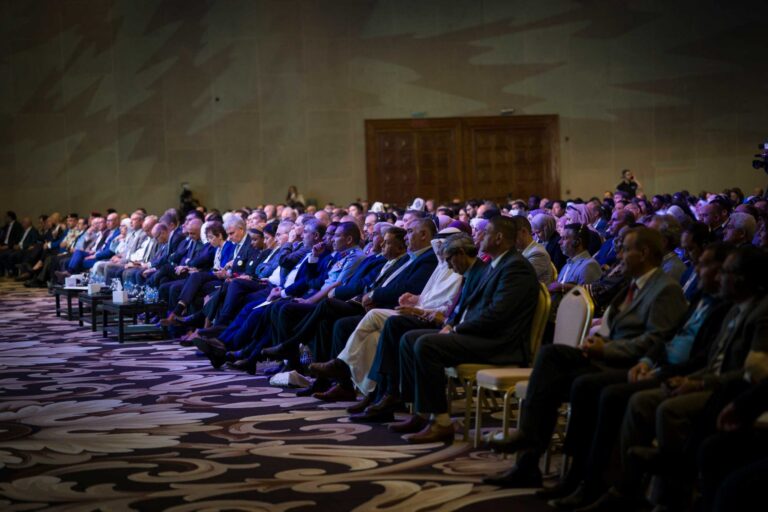
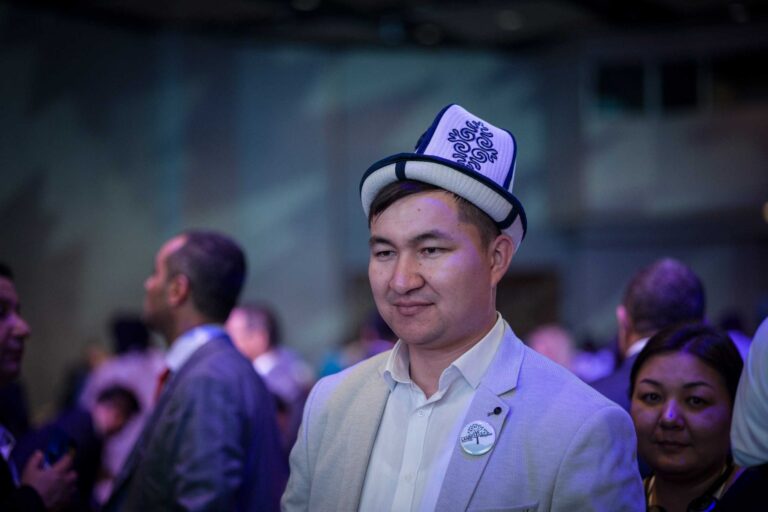
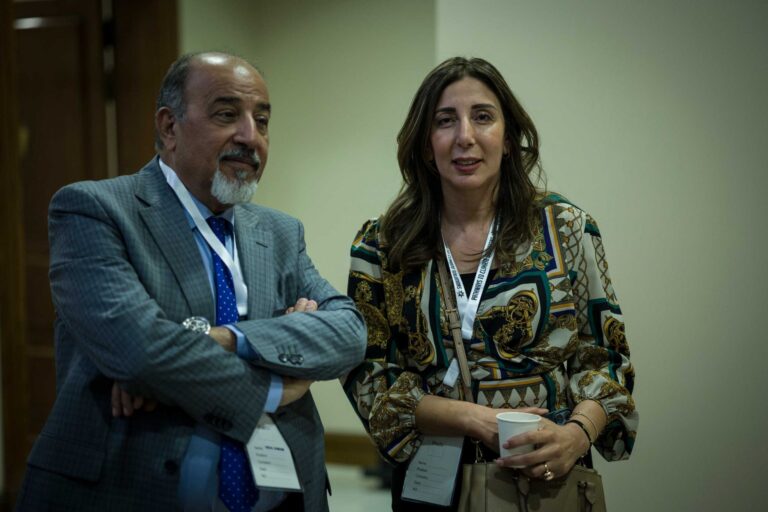
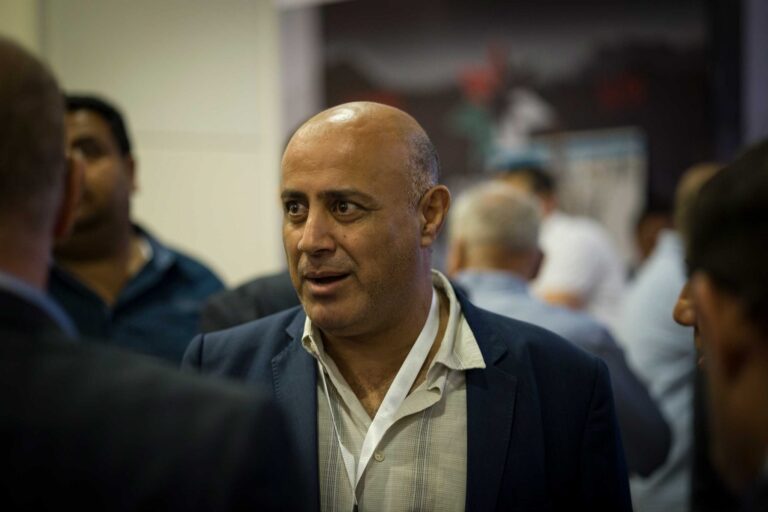
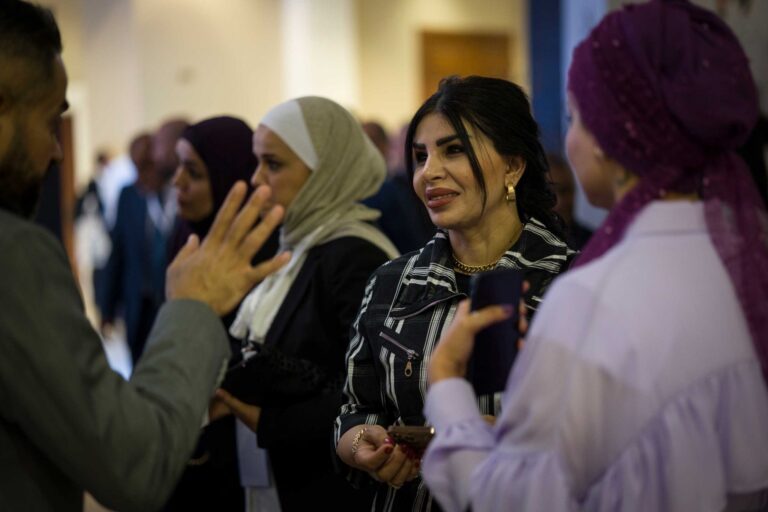
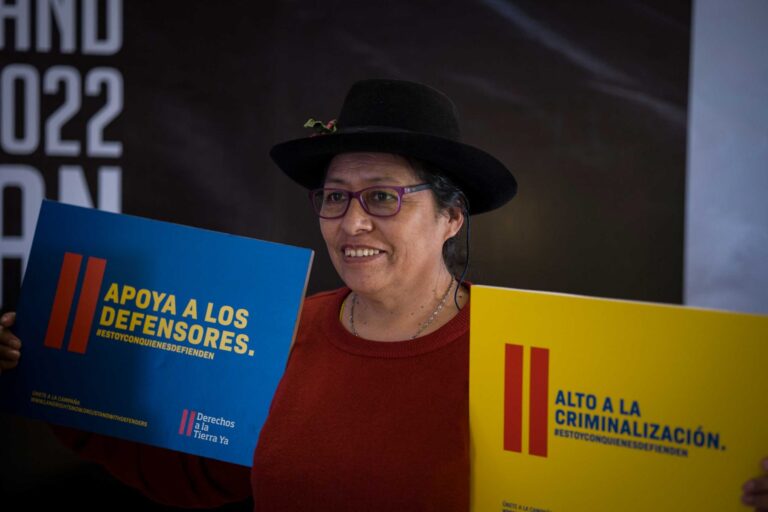
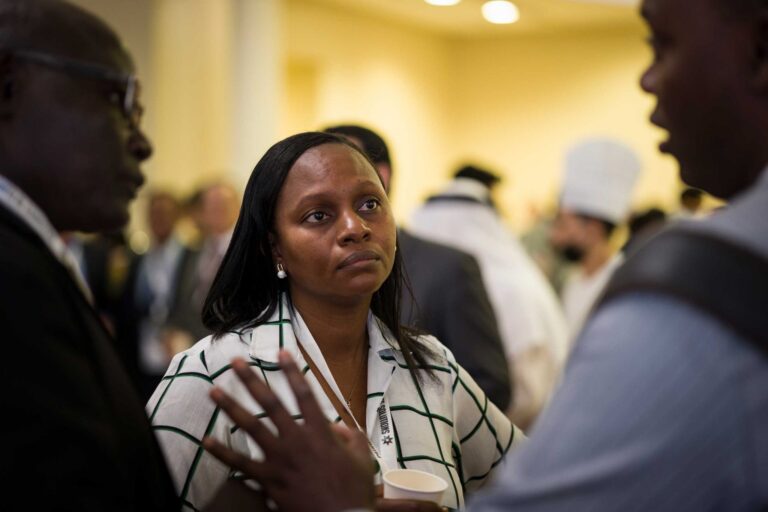
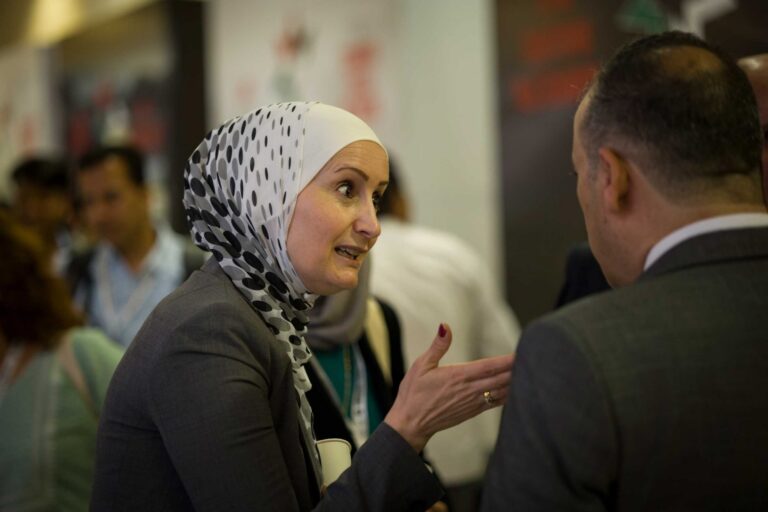
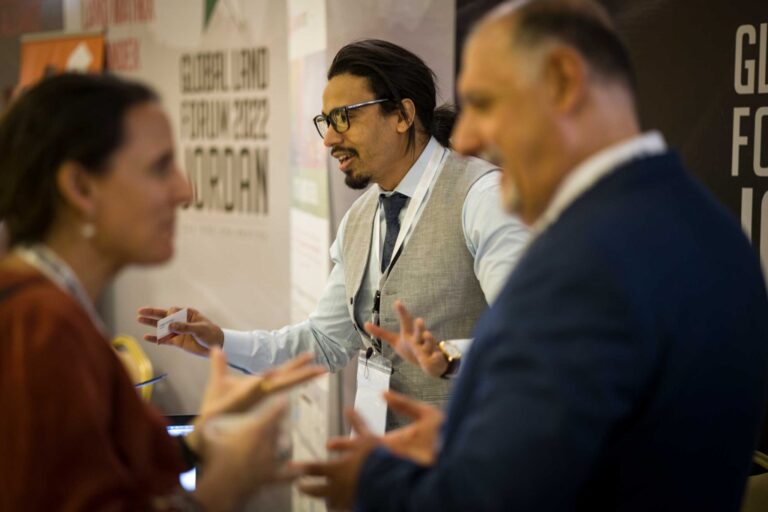
Case study
Securing Indigenous territories to protect life in Latin America
In 2023, 25 Indigenous and civil society organisations partnered with LandRights Now! to launch the “Securing Indigenous Territories to Protect Life” campaign across Argentina, Bolivia, Chile, Ecuador, and Peru, aiming to combat violations and defend land and environmental activists.
Three spokespeople – Neydi Juracán, a Mayan Kaqchiquel leader; Diocelinda Iza, an Indigenous Kichwa leader from the Panzaleo people; and Oseas Barbarán, leader of the Shipibo Konibo and president of the Confederation of Amazonian Nationalities of Peru – amplified demands with powerful results.
Not only did it reach over 363,000 people with 27,000 interactions on social media, but it also generated 17 articles in regional and national media.
" When you don't have secure rights to land and territory, other fundamental rights are also undermined, such as the right to housing, water, health, education, food and freedom of movement."
Neydi Juracán, campaign spokeswoman
